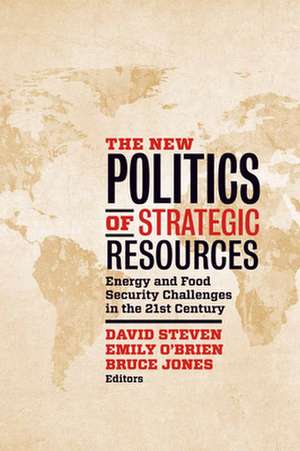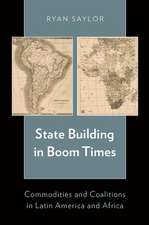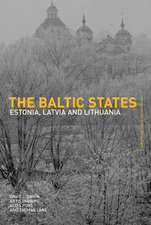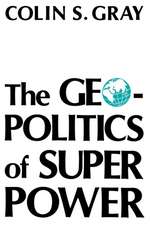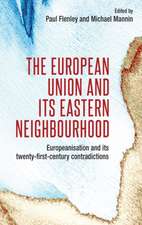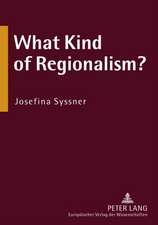The New Politics of Strategic Resources: Energy and Food Security Challenges in the 21st Century
Editat de David Steven, Emily O'Brien, Bruce D. Jonesen Limba Engleză Paperback – 21 noi 2014
Since 2008, energy and food markets—those most fundamental to human existence—have remained in turmoil. Resource scarcity has had a much bigger global impact in recent years than has been predicted, with ongoing volatility a sign that the world is only part-way through navigating a treacherous transition in the way it uses resources. Scarcity, and perceptions of scarcity, increase political risks, while geopolitical turmoil exacerbates shortages and complicates the search for solutions.
The New Politics of Strategic Resources examines the political dimensions of strategic resource challenges at the domestic and international levels. For better or worse, energy and food markets are shaped by perceptions of national interest and do not behave as traditional market goods. So while markets are an essential part of any response to tighter resource supplies, governments also will play a key role. David Steven, Emily O'Brien, Bruce Jones, and their colleagues discuss what those roles are and what they should be.
The architecture for coordinating multilateral responses to these dynamics has fallen short, raising questions about the effective international management of these issues. Politics impede here too, as the major powers must negotiate political and security trade-offs to cooperate on the design of more robust international regimes and mechanisms for resource security and the provision of global public goods.
This timely volume includes chapters on major powers (United States, India, China) and key suppliers (Russia, Saudi Arabia). The contributors also address thematic topics, such as the interaction between oil and state fragility; the changing political dynamics of climate change; and the politics of resource subsidies.
The New Politics of Strategic Resources examines the political dimensions of strategic resource challenges at the domestic and international levels. For better or worse, energy and food markets are shaped by perceptions of national interest and do not behave as traditional market goods. So while markets are an essential part of any response to tighter resource supplies, governments also will play a key role. David Steven, Emily O'Brien, Bruce Jones, and their colleagues discuss what those roles are and what they should be.
The architecture for coordinating multilateral responses to these dynamics has fallen short, raising questions about the effective international management of these issues. Politics impede here too, as the major powers must negotiate political and security trade-offs to cooperate on the design of more robust international regimes and mechanisms for resource security and the provision of global public goods.
This timely volume includes chapters on major powers (United States, India, China) and key suppliers (Russia, Saudi Arabia). The contributors also address thematic topics, such as the interaction between oil and state fragility; the changing political dynamics of climate change; and the politics of resource subsidies.
Preț: 282.53 lei
Nou
Puncte Express: 424
Preț estimativ în valută:
54.06€ • 56.60$ • 44.84£
54.06€ • 56.60$ • 44.84£
Carte tipărită la comandă
Livrare economică 10-24 aprilie
Preluare comenzi: 021 569.72.76
Specificații
ISBN-13: 9780815725336
ISBN-10: 0815725337
Pagini: 365
Ilustrații: black & white illustrations
Dimensiuni: 152 x 229 x 21 mm
Greutate: 0.57 kg
Editura: Brookings Institution Press
Colecția Brookings Institution Press
ISBN-10: 0815725337
Pagini: 365
Ilustrații: black & white illustrations
Dimensiuni: 152 x 229 x 21 mm
Greutate: 0.57 kg
Editura: Brookings Institution Press
Colecția Brookings Institution Press
Notă biografică
David Steven is a nonresident senior fellow in the Foreign Policy program at Brookings, where he works with the International Order and Strategy project.
Emily O'Brien was a senior research officer at New York University's Center on International Cooperation (CIC), where she worked on natural resource management, international institutions, and emerging powers; she now works for REDD Associates.
Bruce Jones is a deputy director of the Foreign Policy program at Brookings, where he also directs the International Order and Strategy project; he has past experience with the United Nations, the World Bank and in intergovernmental negotiations on security and transnational threats.
Emily O'Brien was a senior research officer at New York University's Center on International Cooperation (CIC), where she worked on natural resource management, international institutions, and emerging powers; she now works for REDD Associates.
Bruce Jones is a deputy director of the Foreign Policy program at Brookings, where he also directs the International Order and Strategy project; he has past experience with the United Nations, the World Bank and in intergovernmental negotiations on security and transnational threats.
Descriere
Since 2008, energy and food markets—those most fundamental to human existence—have remained in turmoil. Resource scarcity has had a much bigger global impact in recent years than has been predicted, with ongoing volatility a sign that the world is only part-way through navigating a treacherous transition in the way it uses resources. Scarcity, and perceptions of scarcity, increase political risks, while geopolitical turmoil exacerbates shortages and complicates the search for solutions.
The New Politics of Strategic Resources examines the political dimensions of strategic resource challenges at the domestic and international levels. For better or worse, energy and food markets are shaped by perceptions of national interest and do not behave as traditional market goods. So while markets are an essential part of any response to tighter resource supplies, governments also will play a key role. David Steven, Emily O'Brien, Bruce Jones, and their colleagues discuss what those roles are and what they should be.
The architecture for coordinating multilateral responses to these dynamics has fallen short, raising questions about the effective international management of these issues. Politics impede here too, as the major powers must negotiate political and security trade-offs to cooperate on the design of more robust international regimes and mechanisms for resource security and the provision of global public goods.
This timely volume includes chapters on major powers (United States, India, China) and key suppliers (Russia, Saudi Arabia). The contributors also address thematic topics, such as the interaction between oil and state fragility; the changing political dynamics of climate change; and the politics of resource subsidies.
The New Politics of Strategic Resources examines the political dimensions of strategic resource challenges at the domestic and international levels. For better or worse, energy and food markets are shaped by perceptions of national interest and do not behave as traditional market goods. So while markets are an essential part of any response to tighter resource supplies, governments also will play a key role. David Steven, Emily O'Brien, Bruce Jones, and their colleagues discuss what those roles are and what they should be.
The architecture for coordinating multilateral responses to these dynamics has fallen short, raising questions about the effective international management of these issues. Politics impede here too, as the major powers must negotiate political and security trade-offs to cooperate on the design of more robust international regimes and mechanisms for resource security and the provision of global public goods.
This timely volume includes chapters on major powers (United States, India, China) and key suppliers (Russia, Saudi Arabia). The contributors also address thematic topics, such as the interaction between oil and state fragility; the changing political dynamics of climate change; and the politics of resource subsidies.
